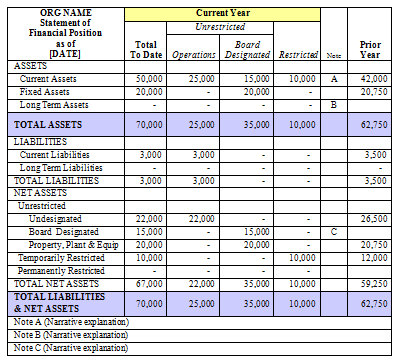What is Blockchain Accounting?

Learn how our auditors work with Deloitte COINIA to help address blockchain. Let’s revisit the basics of a general ledger (GL) as we know it today. A GL includes all the assets, liabilities, equity, expense, and income ledgers, which make up a complete set of the financial transactions records. To make sure a GL is accurate, you’d use a double-entry accounting system. Blockchain technology has the potential to replace the 500-year-old double-entry accounting system.
What is Blockchain Accounting? A Primer for Small Businesses
- And going back to blockchain, things like smart contracts, that’s absolutely something where the profession needs to play a role with the SOC standard and give some level of trust that people’s smart contracts are written properly.
- If an organization modifies a transaction’s data in the blockchain, it’ll affect the hash value.
- Blockchain technology proposes an alternative accounting information system that mitigates the challenges faced by the current double-entry system and transforms the technological skill set and focus of the profession.
- Plus, understanding the basics of blockchain will help you follow future updates and be more prepared.
- Accounting With BlockchainUsing blockchain technology allows users to integrate accounting into business activities rather than separate accounting from business activities.
- Basically, when a company purchases inventory from a supplier on account, a journal entry debiting inventory and crediting accounts payable for “X” amount is entered in the ERP system.
For example, blockchain technology will record that you bought something with 1 bitcoin. However, accountants can’t see whether it’s a car or even that you categorized your assets correctly. Paying 1 bitcoin for a business car has different tax implications than sending a friend 1 bitcoin for their birthday.
For example, artificial intelligence (AI) can drive down the cost of health care by more accurately determining correct drug dosages for patients and potentially reducing errors. It can also assist doctors with preliminary diagnoses of conditions such as skin cancers and help hospitals reduce wait times. This means that it’ll also save you and your bookkeeper tons of time while also making it easier to audit top-down and bottom-up planning as an important aspect in epm your own financial records. If an organization modifies a transaction’s data in the blockchain, it’ll affect the hash value. This will be an immediate red flag that someone tampered with the data.
Certain business functions may best be managed by a central authority. However, such a network structure is not without its challenges. Transactions take time to process and cost money; they are not validated by all parties due to limited network participation, and they are prone to error and vulnerable to hacking. To process transactions in a traditional network structure also requires technical skills.
Blockchain: Impact on Business, Finance and Accounting

As shown in the graphic below, the next stages on the hype cycle for blockchain are the slope of enlightenment and the plateau of productivity. Blockchain is still relatively new, with the development of software being rather dynamic; however, figure 6 lists and briefly describes some of the products in the marketplace that attempt to integrate blockchain technology. Blocks are linked creating the so-called blockchain by including in each block header the hash of the previous block header. The first-ever block on the blockchain is called the genesis block. Figure 2 compares the two kinds of blockchain projects (public/private). Deloitte celebrates its 175th anniversary in 2020, and audit has undergone multiple sea changes in those years.
Case Studies and Industry Examples
Every transaction is attached to the previous transaction in sequential order, creating a chain of transactions (or blocks). A transaction cannot be deleted or edited, thereby creating an immutable audit trial. A transaction can only be changed by adding another transaction to the chain. The agile design of Deloitte COINIA also means it can be used today not only for crypto assets but also for a broader base of digital assets, and beyond, as they are supported by the business community in the future. These can include supply chain tracking, digital rights management, real estate title transfer, and other forms of real-world asset digitalization. Deloitte COINIA is an extension of Deloitte’s award-winning Cortex platform, a cloud-based data platform that harnesses the power how to prepare a statement of stockholders equity of data by securely and seamlessly integrating data acquisition with data preparation and analytics.
However, the ability to trust that both parties are recording the same base transaction information and the real-time availability of this accounting data offers immense benefits for the efficiency with which accounting data can be reconciled and analyzed. New technologies have traditionally faced adoption challenges (e.g., EDP and ERP systems). Therefore, it is not surprising that organizations have not yet embraced blockchain technology in general, and distributed 9 tax audit red flags for the irs ledger technology specifically.
Blockchain technology will likely play a role in that transition. To some, blockchain represents a “movement” rather than a technology and describes migration to blockchain technology as a form of risk mitigation to avoid technological obsolescence. To others, blockchain technology is essentially about reducing information risk and providing trust regarding accounting data.
